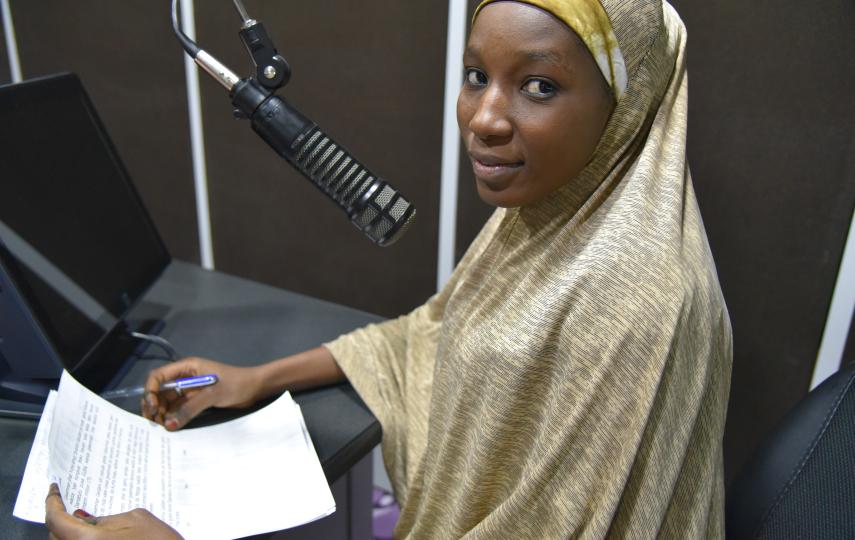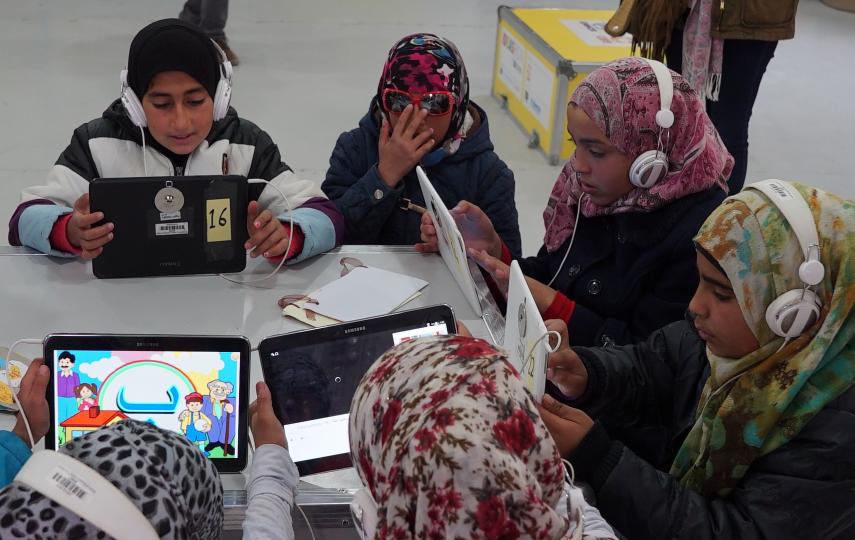His predecessors sat in an office of picture windows overlooking the East River fitted with beige furniture on the upper floors of UN headquarters in Manhattan.
But Mark Lowcock, the new UN under-secretary-general for humanitarian affairs, prefers a cubicle.
“I like the interaction with my direct team,” said the approachable 55-year-old. “I don’t like being stuck in the corner office with all the sofas and that. It’s not my style.”
Ninety days into his role as the coordinator of global relief efforts, the former British civil servant sat down with IRIN after launching the largest appeal for humanitarian funding in UN history.
His role has arguably never been more important. His office estimates that war, drought, and other disasters will put 135 million people at risk around the world next year, a five percent increase on 2017. Last week, he appealed for $22.5 billion to help 90 million of them – the price tag of the omnibus appeal involving the UN and dozens of other aid groups has risen eightfold since 1992.
New conflicts in the Democratic Republic of Congo have engulfed millions; the speed and scale of the Rohingya exodus from Myanmar demands an exceptional response; and Yemen, already predicted to be 2018’s worst crisis, could get even worse.
Lowcock faces a troubled world, but also a troubled organisation.
One of his responsibilities is running the Office for the Coordination of Humanitarian Affairs, the UN body charged with bringing together governments, NGOs, UN agencies, and others to ensure a coherent response to emergencies.
Described in 2016 by external consultants as being in a state of “widespread organisational dysfunction”, and facing donor-imposed budget cuts, OCHA embarked on an internal restructuring. Led by his predecessor Stephen O’Brien, it is now for Lowcock to complete.
Three months in, some of the changes are coming into focus.
First, Lowcock has created five new senior management positions. He said he wants to “get the world’s best people in these jobs”. This opens the way to replacing at least some of the existing senior management, which has come under criticism for in-fighting. It could help rebalance resources “unusually” concentrated in one department, according to the Boston Consulting Group.
Second, in cutting some $37 million from the $278 million OCHA budget due to reduced donor commitments, Lowcock has chosen the main offices in New York and Geneva to bear the brunt of reductions. “We’ve got this refocus on the field versus the HQ,” he said. “We protected the front line.” While some positions will be cut, including, IRIN understands, in liaison offices including Brussels, current staff can be reallocated to remaining jobs. Lowcock said he hopes to find most of the reduction in headcount from natural attrition rather than layoffs.
Third, halting over a decade of OCHA’s growth, Lowcock is looking to be more focused. “We are in future going to be a bit smaller, but we’re also going to be better,” he said. “We're stopping doing the things which are least crucial to our mission, and we're doing more of the things which are most crucial to our mission.”
More video: Lowcock explains five core functions for OCHA.
Lowcock also embraced the prospect of improving the techniques of humanitarian action, wider UN reform under Secretary-General António Guterres, and closer collaboration between the humanitarian sector and development institutions.
“When António Guterres called me in April and asked me about this job, the reason I was excited to take it up was principally because I see in him somebody who’s got the clearest vision for reform of the UN of any secretary-general who I've seen from the outside over the last 30 years working in this sector,” he said. “The work we’re doing to reform the UN development system, to improve the UN’s contribution to peace and security, to improve the way the UN is managed, I think is fundamental to building a UN of the sort that is needed to contribute to dealing with the problems of the world in the 21st century.”
Formerly the top civil servant in the UK’s Department for International Development, Lowcock has worked in the development and humanitarian sector for the past three decades.
His first job covered Ethiopia during the famine of 1984-1985 (he wrote a dissertation on famine as a student). He told IRIN he’d seen huge evolutions. “Since then, we’ve learned a lot about effective response. Famines are not just about providing food to people,” he said, pointing to the relatively recent recognition that the biggest killers are the mild medical ailments that can be lethal for acutely malnourished people.
Lowcock was positive about the prospects of further innovation and listed a range of improvements to the way relief is delivered that have happened over the course of his career. One example: he said humanitarian groups helping in insecure locations have borrowed the concept of “mystery shoppers” from the retail sector, using incognito monitors to check aid is going where it’s supposed to.
But as a newcomer to the UN, he recognised more work needs to be done.
“One thing I’m learning is that António Guterres is right that we’ve got a lot to do to improve the UN, reform the UN. That’s not just a comment about OCHA, it’s a broader comment. And I’m happy, as part of his executive committee, to be playing a broader role as well as my role as the emergency relief coordinator.”
“Is that a UN answer or is that a Mark Lowcock answer?” IRIN asked.
“You only get the Mark Lowcock answer from me,” he replied.
Asked about some of the biggest challenges to the UN today, including the dilemmas of dealing with member state governments involved in abuses like those in Yemen or Myanmar, he portrayed himself as a pragmatic problem-solver.
Although it would sometimes be his job to raise the alarm on human rights violations, he said that role typically sits elsewhere in the UN system. “I’m not the UN’s high commissioner for human rights, I have a fantastic colleague, Zeid [Ra'ad al-Hussein], who does that job.”
While attempting to navigate access and improve the respect for humanitarian law, he said he was already dealing with governments and rebels even-handedly, for example in Yemen: “You have to deal with the situation in front of you and that does involve dealing with whoever is in positions of authority”. He said he spoke to both sides about the need to pay health workers their salaries, allow unhindered humanitarian access, and get shipments into port.
Describing himself as “basically a practical person”, Lowcock also rejected fears that working with development agencies like the World Bank would weaken humanitarian action by eroding impartiality and independence: “There are very few humanitarian crises which are solved by humanitarian intervention. I’m a person who’s interested in solutions, so I’m interested in how the political process will work to resolve conflicts. I'm interested in how peace and security is established, and crucially, I’m interested in development.”
This pragmatic approach also extends to making competitive UN agencies play nice together. For Lowcock, the answer is humility. IRIN asked if his personality lends itself more to conciliation than banging heads together. “You’ll have to ask other people about my personality,” he demurred. But given an opportunity to weigh in on current tensions between the UN’s migration and refugee wings, he was conciliatory.
“It’s not right for us to go around telling people what we think they should be doing. We need to be good listeners; we need to be facilitators; we need to help sort out problems behind the scenes.” Giving a vote of confidence to his new colleagues, he added: “I see my brilliant 2,000 colleagues in OCHA doing a lot of that.”
Since our interview on Friday afternoon, the news has been bad: Yemen’s capital endured airstrikes and heavy fighting in which a former president was killed, Syria peace talks sputtered (again), and news emerged that the United States is pulling out of talks to improve international responses to migration.
Despite the current political realities and the fact that raising billions of dollars might not even be the hardest part of the job, Lowcock was upbeat: “I see a lot of opportunity. My expectation is that we’re going to get better at dealing with the problems that confront us, some of which are growing. We will always have humanitarian crises to deal with, but we’ve got a system that is improvable and is improving.”
bp/ha/ag






